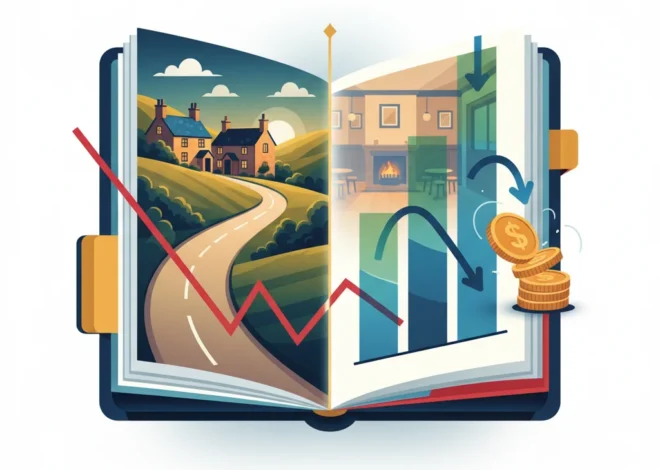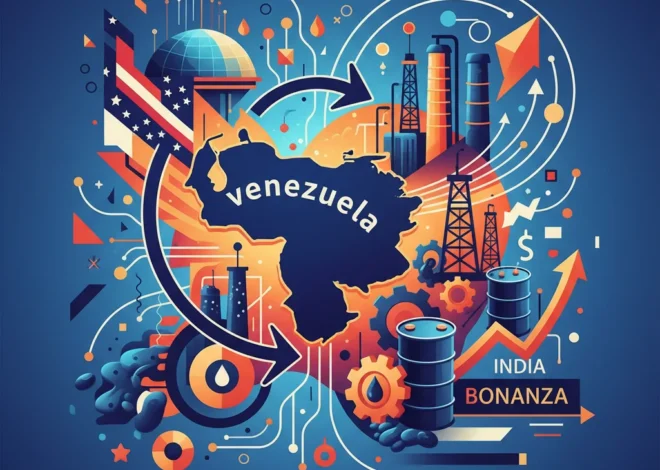
Brazil’s Political Earthquake: What Bolsonaro’s Conviction Means for the Economy, Markets, and Your Investments
In a seismic decision reverberating from Brasília to global trading desks, Brazil’s Supreme Court has signaled the definitive legal conclusion to one of the most turbulent chapters in the nation’s recent history. Former President Jair Bolsonaro is facing a potential 27-year sentence for his alleged role in a coup plot, a move that solidifies the authority of Brazil’s democratic institutions but also raises critical questions for the future of its economy. Supreme Court Justice Alexandre de Moraes has indicated that all of the former president’s legal appeals have been exhausted, closing the door on a contentious political era.
For investors, finance professionals, and business leaders, this event is far more than a political headline. It is a critical data point in assessing the political risk, institutional stability, and long-term trajectory of Latin America’s largest economic powerhouse. Understanding the implications of this verdict is essential for anyone involved in emerging market investing, international finance, and strategic economic planning.
A Nation at a Crossroads: The Context Behind the Verdict
To grasp the magnitude of this development, one must look back at the events that led to this moment. Jair Bolsonaro’s presidency (2019-2022) was marked by polarizing rhetoric, economic liberalization efforts, and persistent clashes with the judiciary. His defeat to Luiz Inácio Lula da Silva in the razor-thin 2022 election was a moment of extreme national tension.
Bolsonaro repeatedly and without evidence cast doubt on the integrity of Brazil’s electronic voting systems, fueling a movement among his supporters who refused to accept the election results. This culminated on January 8, 2023, when thousands of his supporters stormed the Supreme Court, Congress, and the presidential palace in Brasília, in scenes eerily reminiscent of the January 6th Capitol riot in the United States. Investigations following the insurrection uncovered evidence of a coordinated plot among high-level officials in the Bolsonaro administration to prevent the peaceful transfer of power. The verdict now facing the former president is the legal culmination of that investigation, representing a forceful statement by the Brazilian state that attempts to subvert democracy will be met with severe consequences.
The Stealth Sell-Off: Unmasking the Hidden Corporate Debt Threat to Bitcoin's Price
The Immediate Market Reaction: Stability Over Volatility?
Typically, news of high-level political turmoil in an emerging market sends shivers through the stock market and currency trading floors. However, the initial reaction to this development may be counterintuitive. While the headline is dramatic, the verdict can be interpreted by markets as a resolution of uncertainty rather than the creation of it. For months, the lingering question of Bolsonaro’s political future and his potential to disrupt the current administration has been a source of background noise for investors.
By holding a former head of state accountable, Brazil’s institutions are demonstrating a resilience that is paramount for long-term foreign direct investment (FDI). Predictability and the rule of law are the bedrock of a stable investment environment. This judicial firmness could, in the medium to long term, reduce Brazil’s “political risk premium”—the extra return investors demand to compensate for political uncertainty. A lower risk premium can lead to a stronger currency (the Real), lower borrowing costs for the government and corporations, and a more attractive environment for capital inflows.
To illustrate the sensitivity of Brazilian markets to political events, consider the performance of key indicators around recent moments of high tension.
The following table provides a snapshot of the Bovespa Index (Brazil’s main stock index) and the USD/BRL exchange rate around the 2022 election and the January 8th riots.
| Event & Date | Bovespa Index (Approx. Close) | USD/BRL Exchange Rate (Approx.) | Market Implication |
|---|---|---|---|
| Pre-Election (Oct 28, 2022) | 114,640 | 5.30 | High uncertainty and volatility leading up to the final vote. |
| Post-Election (Oct 31, 2022) | 116,037 | 5.25 | Initial relief rally as the democratic process concluded, despite the close result. |
| Post-Riot (Jan 9, 2023) | 109,144 | 5.26 | A sharp but brief dip as markets processed the insurrection, followed by a recovery as institutions held firm. (source) |
| Recent Period (Pre-Verdict News) | ~120,000 | ~5.40 | Markets pricing in ongoing fiscal concerns and global economic factors. |
Implications for Brazil’s Broader Economic and Financial Landscape
Beyond the immediate market jitters, this landmark legal decision has profound implications for several key sectors of Brazil’s financial ecosystem.
1. Foreign Direct Investment and Institutional Credibility
International corporations and investment funds prize stability and the rule of law above all else. The Supreme Court’s actions send a powerful message that Brazil’s legal and democratic frameworks are robust. This could make the country a more appealing destination for FDI compared to other emerging markets where institutional integrity is less certain. According to the UN Conference on Trade and Development, Brazil is already a top recipient of FDI, and this reinforcement of its democratic credentials can only help solidify that status.
2. The Future of Banking and Financial Technology (Fintech)
Brazil boasts one of the most dynamic financial technology scenes in the world, driven by a progressive central bank and widespread digital adoption. The growth of fintech and innovative banking solutions, including those leveraging blockchain technology, depends heavily on a stable and predictable regulatory environment. The political chaos threatened during the post-election period created uncertainty for this sector. The resolution of Bolsonaro’s legal challenges and the affirmation of institutional order provide a clearer runway for innovators and investors in the fintech space. A government that is not constantly fighting existential political battles has more bandwidth to focus on modernizing financial regulations and fostering innovation.
Beyond the Headlines: Decoding the £22 Energy Bill Drop and Its Ripple Effect on the UK Economy
3. Economic Policy and Reform Agenda
With Bolsonaro’s potential as a unifying opposition figure diminished, President Lula’s administration may find it has more political capital to pursue its economic agenda. Key areas to watch include tax reform, fiscal responsibility frameworks, and social programs. The success or failure of these policies will be the primary driver of Brazil’s economics in the coming years. Investors will be closely monitoring whether the government can balance its social spending priorities with the need to maintain fiscal discipline, a perennial challenge for Brazil. The ability to pass meaningful reforms will have a direct impact on inflation, interest rates, and overall GDP growth.
The Long-Term View: A Test Case for Democracy and Markets
The situation in Brazil serves as a fascinating case study on the interplay between democratic health and economic prosperity. The original article from the Financial Times concisely captures the legal endpoint, but the story for the financial world is just beginning. The core thesis for a bullish outlook on Brazil rests on the idea that its institutions have been tested by fire and have emerged stronger.
This institutional strength creates a foundation upon which a more stable and predictable economic future can be built. It reduces the tail risk of democratic backsliding, a fear that has haunted investors in several emerging markets in recent years. For those engaged in global finance, the lesson is clear: robust, independent institutions are a country’s most valuable, long-term economic asset.
As the dust settles, the focus will shift from the political drama to the fundamental metrics of the Brazilian economy. Can the government control inflation? Can it pass reforms to unlock productivity growth? Can it continue to attract the global capital needed to fund its development? The conviction of a former president doesn’t answer these questions, but it does ensure that they will be debated and decided within a stable, democratic framework. For the markets, that is a victory in itself.
The Hidden Costs of Clicks: Why a UK Probe into Deceptive Online Pricing is a Red Flag for Investors
In conclusion, the legal reckoning for Jair Bolsonaro is a watershed moment. It closes a chapter of intense political volatility and, in doing so, potentially opens a new one of renewed confidence for investors and business leaders. The path forward will require careful navigation of a polarized society, but the demonstrated strength of Brazil’s democratic guardrails provides a compelling reason for cautious optimism about the future of this vital global economy.

